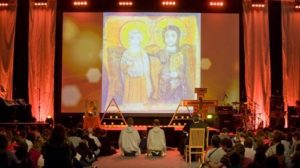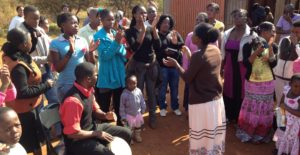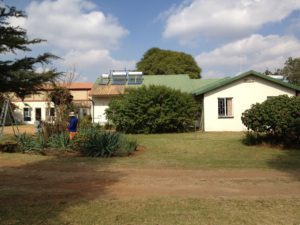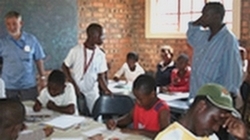Volunteer Day at DCU
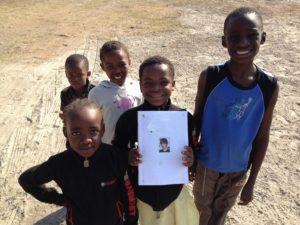 On Thursday coming we’re going to be launching the Missionaries of the Sacred Heart Volunteer Programme at the DCU Volunteering Expo. We’ll be in the Venue – Students Union from 11:00am to 3:00pm, so if you’re around make sure to say hello. Below you’ll find details of the Programme.
On Thursday coming we’re going to be launching the Missionaries of the Sacred Heart Volunteer Programme at the DCU Volunteering Expo. We’ll be in the Venue – Students Union from 11:00am to 3:00pm, so if you’re around make sure to say hello. Below you’ll find details of the Programme.
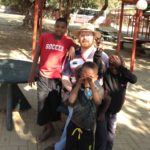 With the Missionaries of the Sacred Heart Volunteer Programme you will work with a community who need your skills, talents and enthusiasm. It’s about being in partnership with others, teaching and learning at the same time, and sharing of yourself in order to make a real difference in your world.
With the Missionaries of the Sacred Heart Volunteer Programme you will work with a community who need your skills, talents and enthusiasm. It’s about being in partnership with others, teaching and learning at the same time, and sharing of yourself in order to make a real difference in your world.
 The Missionaries of the Sacred Heart Volunteer Programme (MSCVP) is a new initiative that:
The Missionaries of the Sacred Heart Volunteer Programme (MSCVP) is a new initiative that:
– looks to provide enriching, challenging and meaningful short term voluntary experiences.
– seeks to share the talents of our volunteers with our partner projects.
– works towards promoting responsible volunteering in our partner projects in South Africa.
We are looking for young men and women, between the ages of 25 and 40, who are interested in undertaking three months of volunteering work abroad over summer. Ideally applicants should have relevant skills, such as a teacher, mechanic, carpenter, nurse, electrician, doctor, etc. All necessary training will be provided. Part of the expenses for the trip will be provided, but there will be a need for fundraising.
If you would like further information you can contact Fr. Alan on (086) 7857955 or by email fralan@mscvocations.ie
Something’s in the air at the Congress
I got a text from a friend earlier today asking me if the Congress was worth all the effort. After all it’s taken years for planning, loads of work and hundreds of hours of sticking up bunting and stuffing envelopes. The answer though is a resounding YES!
As thousands of pilgrims wander around the Exhibition Hall in the RDS, Dublin, what strikes you immediately is the atmosphere. There’s a sense of celebration and anticipation that can only be found in events like the Eucharistic Congress or World Youth Day. As people take time to look at the stands, plan their day’s workshops, grab a cuppa with an old friend or head to the arena for Mass it’s clear everyone is happy to be here, together.
Tuesday dealt with marriage and the importance of family. We had talks from Breda O’Brien, the Grandparents’ Association and Archbishop Hickey from Perth. They spoke of the need for seeing marriage as a three way partnership between God and each spouse. The family, they said, needs to be rooted in faith in order to fully grow and flourish.
Wednesday was a day devoted to vocation, priesthood and religious life. In the morning we had a celebration of religious life, led by Chris Monaghan, Passionist from Australia. Following Chris we had two young religious, who spoke of their vocational journey. Priesthood is not to be undertaken as a personal honour, Archbishop Dermot Clifford told pilgrims during the day. In the words of Pope John Paul II, Archbishop Clifford described priesthood as “unique, indispensable and irreplaceable”. He added that “the title of bishop is one not of honour but of function and therefore a bishop should strive to serve rather than rule.”
Unity at the Eucharistic Congress
Ecumenism was the name of the game at the 50th International Eucharistic Congress (IEC2012) today Monday 11th June, with an extensive programme of events on the RDS campus and main arena focusing on the importance of Christian Unity. The theme of the day was Exploring and Celebrating Our Communion through Baptism.
A catechesis on our common baptism: ‘Communion and Baptism: A Passion for the Unity of Christ’s Body’ was delivered in the main RDS arena by Br Alois Löser, Prior of the Taizé Community, France. Dr Maria Voce, President of the International Focolare Movement, shared her personal testimony on ‘Word of Life’ before the Liturgy of Word and Water presided which was by Archbishop Michael Jackson.
Speaking during the liturgy of Word and Water, Archbishop Jackson said: “The importance to me of this Eucharistic Congress is … it speaks of the broader picture of the life of communion flowing from baptism. Once we accept that mission is, first and last, God’s mission, questions have to be asked about how we enable this gift of God to be the spiritual activity and the active spirituality of the church of today. And we need to be mindful always that God speaks through the world to the church, as also to the world through the church.”
The Divine In Everyone
There’s a clock on the office wall of the Tshwaranang Hospice and Care Centre that advertises the services of a local funeral director. It’s a sombre reminder of the reality facing South Africa in light of the HIV / AIDS crisis. But in a place that could easily be overshadowed by despair hope reigns, at least for now.
As we walk around the ground with Mna. Joanna, the centre director, we meet Sammy working in the garden. Sammy was once a patient in Tshwarang, but because of the care he received he has now recovered, at least temporarily. He is now looking after the vegetables that the Centre grows and sells in order to help support itself.
The word ‘Tshwaranang’ means ‘holding hands.’ It is small centre, with only eighteen beds. On the weekend we visit one person has died and two more patients have been admitted. What is important here is the quality of care. From the food prepared in the simple kitchen, to the grounds where the patients sit out on warm days, to the gentleness of the nurses, there is a sense of something special happening.
Tshwaranang is a place where the Gospel message is very much alive. It’s not enough to treat the sick because they are in need of medical attention or even because they are our brothers and sisters. In Matthew’s Gospel Jesus tells us the mark of a Christian will be their ability to see the divine in the poor, the imprisoned, the refugee and the infirm and to treat them as they would treat Christ himself. This is an essential part of our truest vocation and the greatest challenge of our faith, to see the divine spark in all people, especially those at the margins.
Africa Here We Come! (Maybe)
 By my very nature I’m not a nervous passenger. In fact I love travelling. I love the sights, trying the food, making new friends, and experiencing different cultures! But by any measure this trip has gotten off to a rocky start.
By my very nature I’m not a nervous passenger. In fact I love travelling. I love the sights, trying the food, making new friends, and experiencing different cultures! But by any measure this trip has gotten off to a rocky start.
I’m sitting in Cork Airport with an incessant ringing in my ears typing fast and furiously. It’s because there’s a power cut and I forgot to recharge the laptop last night. The aiport siren though is working perfectly, letting us no there’s no power. One would have thought that the complete absence of lights anywhere in the building would be a good enought indicator, but better safe than sorry. On top of that my flight to London is delayed an hour and a half. And to make mtters just that little bit worse there no coffee, because the coffee machine isn’t working, because there’s no power. Even Job would be getting a little antsy at this stage and I’m definitely no Job.
However it’s all for a great cause. I’m off to South Africa for two weeks to look at setting up a volunteering programme with our Missionary of the Sacred Heart brothers in the Region. Along with Sr. Susan Jones, a member of the Holy Faith Congregation and a chaplain in DCU, we’ll be travelling around the country, working in the various projects and looking at possibilities for short term volunteering ( three months ). We’re going to begin in Tembisa, one of the largest townshops just outside Johannesburg. Fr. Herman van Dyke, based in the Ivory Park parish, is involved with the local Tshwaranang AIDS Hopsice and the Pilani youth project. We should be starting on Monday, so I’ll fill you in as it happens.
In the meantime God has taken pity on my plight. The electricity is back on. The sirens have stopped. Perhaps now is a good time to see if the coffee machine is running again. Things are beginning to look up!
What is God asking of us today?
“If you don’t have it, don’t spend it.” As far as common sense goes it doesn’t get any more self evident than that. But are there certain things that are absolutely essential, things that we cannot abandon, without sacrificing values that make us who we are?
This was evident last week when the Irish Government stated that is was still committed to keeping its UN target of allocating 0.7 per cent of gross national income to overseas aid by 2015. We are in a time of cut back, redundancies and closures and one could be forgiven for thinking that the future looks a bleak. You would think that this would be a time when we need to look after our own first, after all charity begins at home. (more…)
Pope Benedict’s Message for Vocations
World Day of Prayer for Vocations 2012
Pope Benedict XVI
 The source of every perfect gift is God who is Love – Deus caritas est: “Whoever remains in love remains in God and God in him” (1 Jn 4:16). Sacred Scripture tells the story of this original bond between God and man, which precedes creation itself. Writing to the Christians of the city of Ephesus, Saint Paul raises a hymn of gratitude and praise to the Father who, with infinite benevolence, in the course of the centuries accomplishes his universal plan of salvation, which is a plan of love. In his Son Jesus – Paul states – “he chose us, before the foundation of the world, to be holy and without blemish before him in love” (Eph 1:4). We are loved by God even “before” we come into existence! Moved solely by his unconditional love, he created us “not … out of existing things” (cf. 2 Macc 7:28), to bring us into full communion with Him.
The source of every perfect gift is God who is Love – Deus caritas est: “Whoever remains in love remains in God and God in him” (1 Jn 4:16). Sacred Scripture tells the story of this original bond between God and man, which precedes creation itself. Writing to the Christians of the city of Ephesus, Saint Paul raises a hymn of gratitude and praise to the Father who, with infinite benevolence, in the course of the centuries accomplishes his universal plan of salvation, which is a plan of love. In his Son Jesus – Paul states – “he chose us, before the foundation of the world, to be holy and without blemish before him in love” (Eph 1:4). We are loved by God even “before” we come into existence! Moved solely by his unconditional love, he created us “not … out of existing things” (cf. 2 Macc 7:28), to bring us into full communion with Him.
In great wonderment before the work of God’s providence, the Psalmist exclaims: “When I see the heavens, the work of your hands, the moon and the stars which you arranged, what is man that you should keep him in mind, mortal man that you care for him?” (Ps 8:3-4). The profound truth of our existence is thus contained in this surprising mystery: every creature, and in particular every human person, is the fruit of God’s thought and an act of his love, a love that is boundless, faithful and everlasting (cf. Jer 31:3). The discovery of this reality is what truly and profoundly changes our lives. In a famous page of the Confessions, Saint Augustine expresses with great force his discovery of God, supreme beauty and supreme love, a God who was always close to him, and to whom he at last opened his mind and heart to be transformed: “Late have I loved you, O Beauty ever ancient, ever new, late have I loved you! You were within me, but I was outside, and it was there that I searched for you. In my unloveliness I plunged into the lovely things which you created. You were with me, but I was not with you. Created things kept me from you; yet if they had not been in you they would have not been at all. You called, you shouted, and you broke through my deafness. You flashed, you shone, and you dispelled my blindness. You breathed your fragrance on me; I drew in breath and now I pant for you. I have tasted you, now I hunger and thirst for more. You touched me, and I burned for your peace.” (X, 27.38). With these images, the Saint of Hippo seeks to describe the ineffable mystery of his encounter with God, with God’s love that transforms all of life.
It is a love that is limitless and that precedes us, sustains us and calls us along the path of life, a love rooted in an absolutely free gift of God. Speaking particularly of the ministerial priesthood, my predecessor, Blessed John Paul II, stated that “every ministerial action – while it leads to loving and serving the Church – provides an incentive to grow in ever greater love and service of Jesus Christ the head, shepherd and spouse of the Church, a love which is always a response to the free and unsolicited love of God in Christ” (Pastores Dabo Vobis, 25). Every specific vocation is in fact born of the initiative of God; it is a gift of the Love of God! He is the One who takes the “first step”, and not because he has found something good in us, but because of the presence of his own love “poured out into our hearts through the Holy Spirit” (Rom 5:5).
In every age, the source of the divine call is to be found in the initiative of the infinite love of God, who reveals himself fully in Jesus Christ. As I wrote in my first Encyclical, Deus Caritas Est, “God is indeed visible in a number of ways. In the love-story recounted by the Bible, he comes towards us, he seeks to win our hearts, all the way to the Last Supper, to the piercing of his heart on the Cross, to his appearances after the Resurrection and to the great deeds by which, through the activity of the Apostles, he guided the nascent Church along its path. Nor has the Lord been absent from subsequent Church history: he encounters us ever anew, in the men and women who reflect his presence, in his word, in the sacraments, and especially in the Eucharist” (No. 17).
The love of God is everlasting; he is faithful to himself, to the “word that he commanded for a thousand generations” (Ps 105:8). Yet the appealing beauty of this divine love, which precedes and accompanies us, needs to be proclaimed ever anew, especially to younger generations. This divine love is the hidden impulse, the motivation which never fails, even in the most difficult circumstances.
Dear brothers and sisters, we need to open our lives to this love. It is to the perfection of the Father’s love (cf. Mt 5:48) that Jesus Christ calls us every day! The high standard of the Christian life consists in loving “as” God loves; with a love that is shown in the total, faithful and fruitful gift of self. Saint John of the Cross, writing to the Prioress of the Monastery of Segovia who was pained by the terrible circumstances surrounding his suspension, responded by urging her to act as God does: “Think nothing else but that God ordains all, and where there is no love, put love, and there you will draw out love” (Letters, 26).
It is in this soil of self-offering and openness to the love of God, and as the fruit of that love, that all vocations are born and grow. By drawing from this wellspring through prayer, constant recourse to God’s word and to the sacraments, especially the Eucharist, it becomes possible to live a life of love for our neighbours, in whom we come to perceive the face of Christ the Lord (cf. Mt 25:31-46). To express the inseparable bond that links these “two loves” – love of God and love of neighbour – both of which flow from the same divine source and return to it, Pope Saint Gregory the Great uses the metaphor of the seedling: “In the soil of our heart God first planted the root of love for him; from this, like the leaf, sprouts love for one another.” (Moralium Libri, sive expositio in Librum B. Job, Lib. VII, Ch. 24, 28; PL 75, 780D).
These two expressions of the one divine love must be lived with a particular intensity and purity of heart by those who have decided to set out on the path of vocation discernment towards the ministerial priesthood and the consecrated life; they are its distinguishing mark. Love of God, which priests and consecrated persons are called to mirror, however imperfectly, is the motivation for answering the Lord’s call to special consecration through priestly ordination or the profession of the evangelical counsels. Saint Peter’s vehement reply to the Divine Master: “Yes, Lord, you know that I love you” (Jn 21:15) contains the secret of a life fully given and lived out, and thus one which is deeply joyful.
The other practical expression of love, that towards our neighbour, and especially those who suffer and are in greatest need, is the decisive impulse that leads the priest and the consecrated person to be a builder of communion between people and a sower of hope. The relationship of consecrated persons, and especially of the priest, to the Christian community is vital and becomes a fundamental dimension of their affectivity. The Curé of Ars was fond of saying: “Priests are not priests for themselves, but for you” (Le cure d’Ars. Sa pensée – Son cœur, Foi Vivante, 1966, p. 100).
Dear brother bishops, dear priests, deacons, consecrated men and women, catechists, pastoral workers and all of you who are engaged in the field of educating young people: I fervently exhort you to pay close attention to those members of parish communities, associations and ecclesial movements who sense a call to the priesthood or to a special consecration. It is important for the Church to create the conditions that will permit many young people to say “yes” in generous response to God’s loving call.
The task of fostering vocations will be to provide helpful guidance and direction along the way. Central to this should be love of God’s word nourished by a growing familiarity with sacred Scripture, and attentive and unceasing prayer, both personal and in community; this will make it possible to hear God’s call amid all the voices of daily life. But above all, the Eucharist should be the heart of every vocational journey: it is here that the love of God touches us in Christ’s sacrifice, the perfect expression of love, and it is here that we learn ever anew how to live according to the “high standard” of God’s love. Scripture, prayer and the Eucharist are the precious treasure enabling us to grasp the beauty of a life spent fully in service of the Kingdom.
It is my hope that the local Churches and all the various groups within them, will become places where vocations are carefully discerned and their authenticity tested, places where young men and women are offered wise and strong spiritual direction. In this way, the Christian community itself becomes a manifestation of the Love of God in which every calling is contained. As a response to the demands of the new commandment of Jesus, this can find eloquent and particular realization in Christian families, whose love is an expression of the love of Christ who gave himself for his Church (cf. Eph 5:32). Within the family, “a community of life and love” (Gaudium et Spes, 48), young people can have a wonderful experience of this self-giving love. Indeed, families are not only the privileged place for human and Christian formation; they can also be “the primary and most excellent seed-bed of vocations to a life of consecration to the Kingdom of God” (Familiaris Consortio, 53), by helping their members to see, precisely within the family, the beauty and the importance of the priesthood and the consecrated life. May pastors and all the lay faithful always cooperate so that in the Church these “homes and schools of communion” may multiply, modelled on the Holy Family of Nazareth, the harmonious reflection on earth of the life of the Most Holy Trinity.
With this prayerful hope, I cordially impart my Apostolic Blessing to all of you: my brother bishops, priests, deacons, religious men and women and all lay faithful, and especially those young men and women who strive to listen with a docile heart to God’s voice and are ready to respond generously and faithfully.
Getaway with God
When our founder, Fr. Jules Chevalier, established the group in 1854 he did not believe we should be tied to just one type of work. As a result you will find Missionary of the Sacred Heart ( MSC ) brothers and priests living and working throughout over 50 countries, engaged in all sorts of ministry. Hospitals, prison, schools, colleges, universities, parishes, local community projects, counselling centres and many more locations provide the settings for MSC members to carry out the overall mission of being and bringing the Good News of God’s love to the people we meet. (more…)


